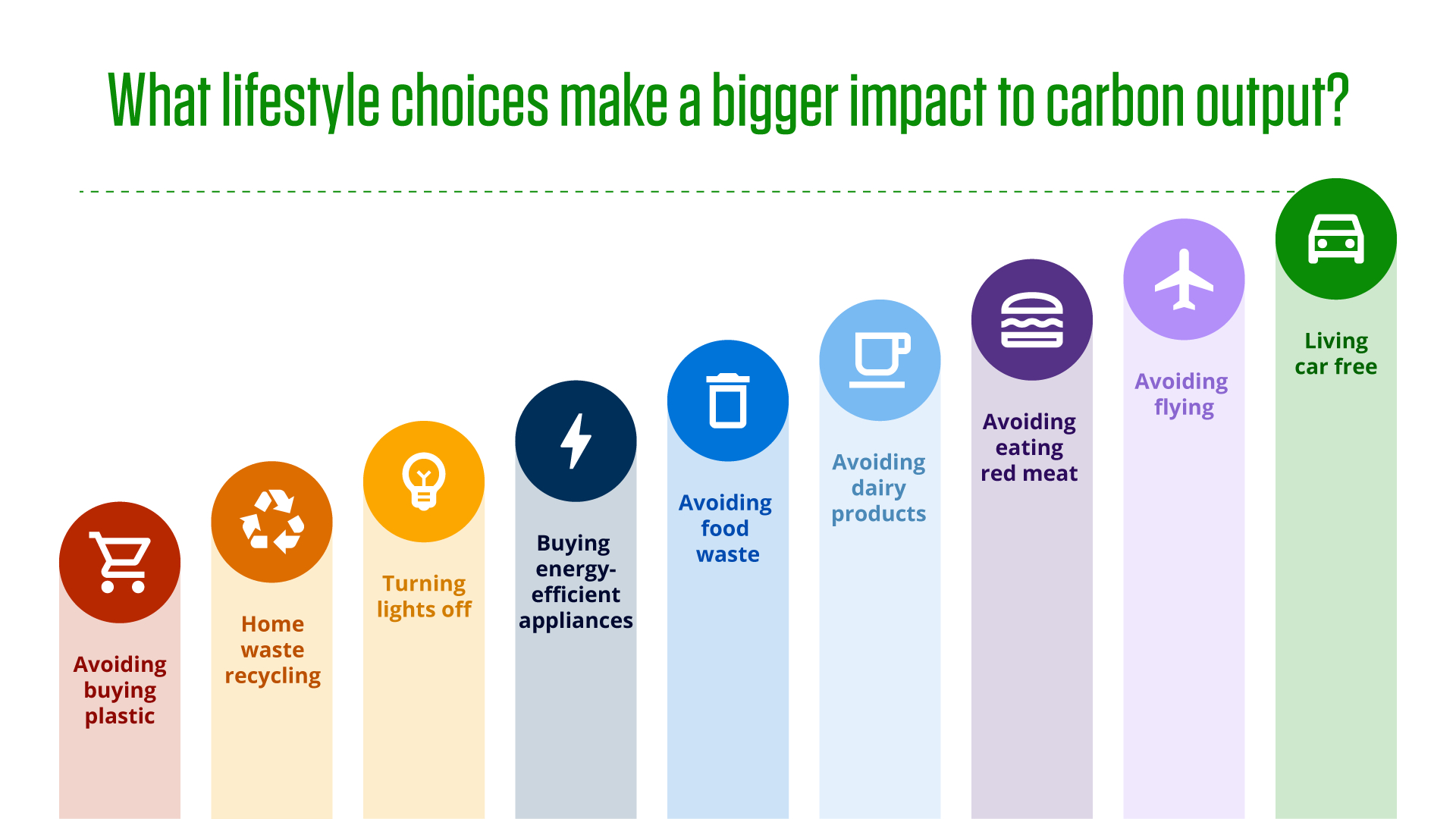Let's make 2023 the year that our New Year's resolutions stick, and what greater motivation to change your ways than helping to save our planet (and many of the suggestions will help you save money too)!
Everyone has a responsibility to tackle climate change and, at University of Bath, you’re part of a strong community of changemakers collectively striving to make a difference. You can be part of the change by making individual choices in your day-to-day life to lessen your personal impact on the environment. The most difficult part is knowing which changes actually make a difference.
That's where our Climate Action team come in. They've collated ten top tips to help you make a real impact in your everyday life. Check the homepage each day from Monday 9 January for the latest tip. In the meantime, why not check out the Climate Action blog for some helpful ideas off the back of the 2021 Climate Action Survey.
We've also tapped into some of the world-leading expertise we have right here at the University to bring you some inspiration.
Leading environmental psychologist Professor Lorraine Whitmarsh, from the Department of Psychology, promotes the value of individual environmental actions in her co-authored chapter in ‘The Climate Book’ by Greta Thunberg:
“Often individual change and systems change in response to the climate crisis are presented as two distinct topics. This can lead to a sense of hopelessness among individuals that their actions – however positive – are only a drop in the ocean compared to the enormity of the problem that climate change presents. Our message instead is a more positive one: individual actions do matter, and combined they determine broader social transformations which are required from policymakers and industry."
And to make sure your resolutions actually stick, remember these top tips from Emeritus Professor Bas Verplanken on how to stay motivated:
Don’t bite off more than you can chew. You’re more likely to achieve one realistic change in your life than many different ones. Set realistic, achievable resolutions.
Change your environment. This is the most important factor. You don’t need to move house, or get a new job, but you do need to change the context you find yourself in so you don’t revert to old habits.
Break down resolutions into manageable chunks. Breaking down lifestyle changes into smaller pieces and putting in place a proper plan of action to implement them is vital. Be specific on what steps you need to take, and don’t rely on willpower alone.
Make changes together. Working in groups can certainly be helpful when it comes to making changes and can provide valuable support. It’s harder to say ‘no’ to others, and its often more motivating working together in a group.
Don’t despair when things go wrong. This is likely to happen at some point and knowing this can help. Act on the steps above to avoid getting demotivated and if it does go wrong, remember New Year’s Resolutions can be made at any point in the year.
If you've missed any of our tips, read them all here.
Day 1: Switch up your commute
Day 2: Try meat-free
Day 3: Get active on climate change for staff and Get active on climate change for students
Day 4: Spend less, save more
Day 5: Use your money wisely
Day 6: Fund your net zero project
Day 7: Look at your energy use for staff and Look at your energy use for students
Day 8: Shop wisely
Day 9: Know your bins
Day 10: Find out more

